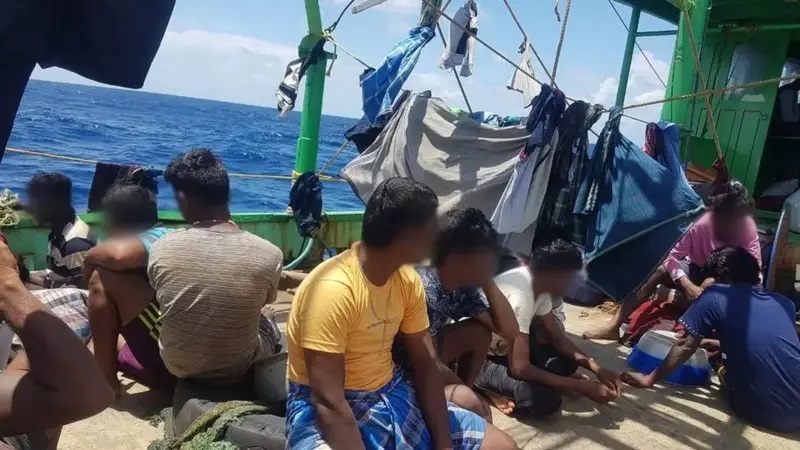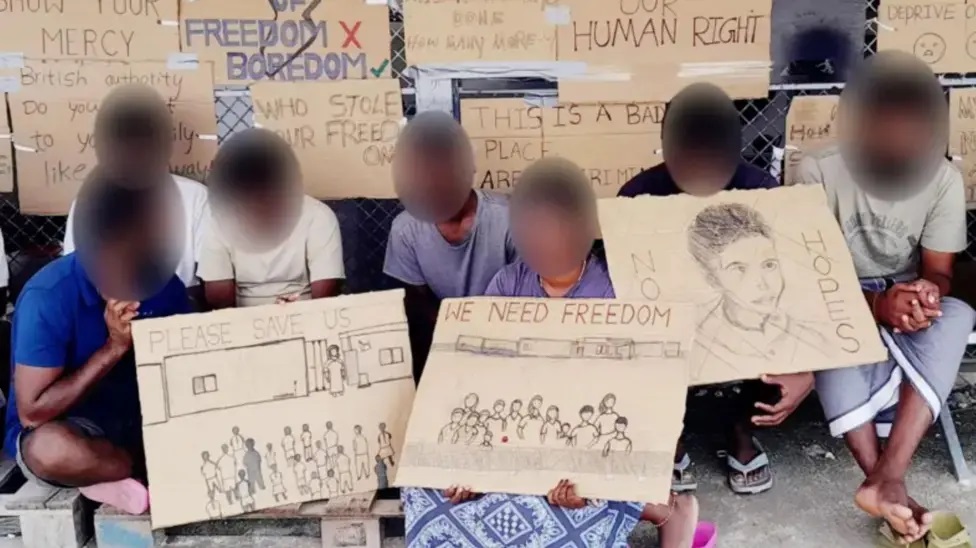
After more than three years stranded in dire conditions on Diego Garcia, a remote island in the Indian Ocean, dozens of Eelam Tamil refugees fleeing persecution in Sri Lanka have arrived in the UK.
Their resettlement follows years of complex legal battles and struggles in conditions that the United Nations sharply criticised.
On Monday night, 47 Tamils touched down in the UK, with an additional eight arriving on Tuesday morning from Rwanda, where they had been receiving medical treatment. Among the group were 12 children. The Tamils had been stranded on Diego Garcia since October 2021, when their boat, which was attempting to reach Canada to claim asylum, encountered difficulties.
‘A big day for justice’
Lawyers and campaigners hailed the resettlement as a major victory. "We are delighted to welcome our clients to the UK," said Simon Robinson of Duncan Lewis Solicitors, who represents some of the group. "The decision to grant them leave to remain and allow them to enter the UK has brought to an end years of detention in inhumane conditions. It is a big day for justice, and an opportunity for a fresh start for our clients."
Tessa Gregory, of Leigh Day, another law firm representing the Tamils, called the UK government’s decision "the only sensible solution to end the humanitarian crisis." She noted, "This vulnerable group, which includes 16 children, have spent 38 months detained in the most squalid of conditions on Crown land. We hope our clients will now be able to seek safe haven and begin to rebuild their lives."

Life in ‘hellish" conditions
During their time on Diego Garcia, the Tamils were housed in makeshift camps in military tents, some that leaked and were infested with rats. Conditions were so dire that multiple hunger strikes, self-harm incidents, and suicide attempts occurred in the camp. Some migrants described it as living in "hell." Allegations of sexual assault and harassment further highlighted the grim reality of their situation.
"I hope to turn a new page," one Tamil refugee told the BBC. "I hope my health will improve and I will transform into a new person."
The UK government described the move as a "one-off" due to the exceptional nature of the situation. A government spokesperson stated, "This government inherited a deeply troubling situation that remained unresolved under the last administration for years." The government has since implemented measures to prevent similar cases, announcing that future arrivals in Diego Garcia will be sent to Saint Helena, another UK territory 5,000 miles away.
![]()
Legal battles
The arrival of the Tamils follows extensive legal battles over their detention, with a judge and legal teams even flying to Diego Garcia to assess their cases. Eight members of the group had already been granted international protection while on the island, meaning they cannot be returned to Sri Lanka. However, the UK government has granted the group only six months’ entry outside the immigration rules. The Tamils will receive financial support from the Foreign Office during this time but are not permitted to work.
In letters sent to the Tamils, the Home Office stressed that the temporary entry clearance does not constitute permanent settlement or recognition of refugee status. The Tamils now face uncertainty about their long-term future.
The resettlement of the Tamils also comes amidst shifting dynamics surrounding the Chagos Islands, which include Diego Garcia. In October, the UK announced plans to cede control of the Chagos Islands to Mauritius, excluding the US military base on Diego Garcia. The agreement, however, has yet to be finalized and is facing opposition from both UK politicians and allies of US President-elect Donald Trump.
